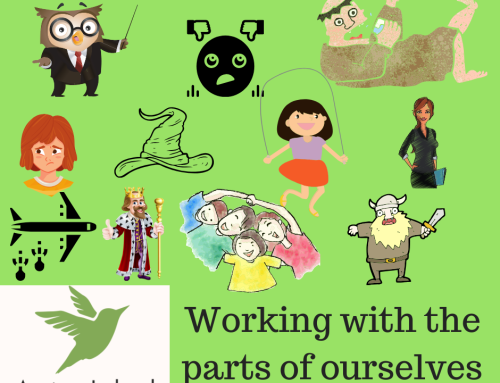Suffering with FOMO or know someone who is?
Feeling stuck and paralysed? feeling like others are living life fuller than us? struggling to face daily life? Feeling that the grass is greener? Facing chronic unhappiness? Wondering how life would have been if?
The term “FOMO” or “Fear Of Missing Out” has a pop culture connotation and is often thrown around social media. But having the feeling that life is passing us by or being desperately unhappy in our current situation is no joke.
To feel trapped in life, love, work, finances, our living situations, our country, our futures or our current bodies can bring serious problems along with it.
Thoughts of improving things for the better are common, but when does wishing it were different make things much worse in the present?
This article looks at types of thinking that contribute to feeling unhappy and feeling like we are missing out.
I want it to be different:
Wanting life to be better or different is a normal human desire and emotion! Feeling like we aren’t living up to our full potential, knowing the best has yet to come and sensing that there is more to life are parts of our nature to actualize/grow as human beings.
Used properly we can create a vision of our futures and actualise them though planning goals and actions.
When things are actionable, plannable and movable our feelings of being unsatisfied in the now can galvanise us.
But when there are things that we can’t change right now or we don’t know how: our thinking on how terrible the present is can be a catalyst for depression, anxiety and low self-esteem.
Thinking versus ruminating:
I have mentioned this in other articles, but I shall mention it again how here our thinking is critical for our anxiety! The Anxiety that we feel in our bodies is literally the physical manifestation of our worries and negative thinking.
The more negative we think the more negative we feel; this cycle can also lead to depression.
Because we feel unhappy, we can try to think our way out of it! Our brains go into overdrive for a solution or just mull over the problem. But this is adding wood to the fire.
Each of us has the power to divert our attention when we get distracted or to change our focus. Though when we are unhappy, we can give a blank cheque to our negative thinking to run as long as it wants.
This leads to a toxic build-up of not only negative thoughts but negative emotions, body sensations and behaviour! This becomes habitual!
Over thinking about situations that we don’t like bog us down in negativity and that means that our minds can start to become wired to be negative automatically.
When this happens, we can be severely unhappy, we also can end up with FOMO.
FOMO and magnifying the negative:
When we have bad FOMO our thoughts awfulize anything that we might be missing out on.
This kind of thinking is closely connected to some specific types of distorted thinking: Filtering, Catastrophizing and Personalizing.
When we filter, we filter out things that are good, but we also magnify things that are not good. We dwell on the bits that we don’t like and say things like “I can’t stand it right now”!
The thing about this is that our inner dialogue is very important. The body and emotions react to what the brain tells it.
If someone states to themselves: “staying in and missing the concert is going to torture, awful, horrible or horrendous” then likely it is going to be!
If the language used internally and outwardly is extreme, then so will the reaction! When we only look at the negative and magnify it, we make the situation much worse for ourselves.
The brain sniffs out danger and problems. It’s just wired that way and it will always automatically focus more on problems then positives.
So, a way to deal with this can be to consciously make lists of what are we grateful for in the present.
Refuse to give the worrier or the moper in our head the space to dwell on things. Focus on the good in each day and write down 3 things we have enjoyed or been grateful for that were only possible because of things being the way they are. This can help with the filtering
FOMO and personalizing:
This form of distorted thinking has a lot to do with FOMO and feelings of unhappiness because it takes something unrelated to us and by cheating connects it back to us.
When we see someone else doing something, we think why aren’t I doing that as well, why isn’t it me? We see friends travelling and ask why hasn’t my trip started yet?
Others getting in relationships, others getting married, others getting promoted! Instead of being fully happy for them we tie it back to ourselves.
The brain does this automatically, but the connections are weak. The unhappy mind will react to any trigger that brings it back to the pain.
As the old saying goes: “misery loves company”.
The secret of beating personalizing is to remember that each person in this life is individual and that comparisons are unfair.
If we compare: I wish my dog was more like their dog, then we forget what makes our dog our dog!
We are all unique individuals and to personalize doesn’t take that into account. Each of us must walk this path alone and although we might wear similar boots to do it or go on the same trail our experience is always linked to ourselves.
We bring uniqueness into every moment as everyone else does. So, drop the illusion of the comparison game where someone’s getting more out of life than us! Focus on how to build the unique future for ourselves that doesn’t have to be like anyone elses.
FOMO and catastrophizing:
Another form of distorted thinking key in FOMO is catastrophizing! This means going for the worst-case scenario and predicting negative outcomes all the time.
This could even include worrying: “if I don’t go here or there then what if people have fun without me” or “they’ll have experiences that I would have enjoyed and missing that is awful!”
When we catastrophize, our worrying brain goes for the worst-case scenario. The worst consequences of missing out. “I’ll look back on my life and regret this”, “what if they all stop being my friend because I didn’t go”, “if I don’t go now it will never happen for me”.
These are all variations on the classic “what if” thinking style that underlies much of anxiety. When we paint these scary pictures in our heads, they fill us with dread which make us then feel compelled to act because we don’t want to sit with the uncomfortableness.
But if we know that thinking is what causes these reactions within us then we suddenly have power again! All negativity about situations exists in us, not in the situation itself.
Someone else in our situation could be perfectly fine and content but if we catastrophize the missing out, we make it seem awful that we are not where we would rather be.
Rating thoughts instead of believing them can help. If we think we are going to miss out on the best thing ever then rate from 0-100% how much we believe that to be true? Is it dead certain (100%)?
If so, how do we know that? We never know what is going to happen in the next second, it could be the most blissful second of our lives, but not if we are shrouded in negativity wanting it all to be different.
We don’t know how anything is going to pan out 100%. It could be good, or it may not! Others also don’t all forget about us or think the same because we don’t come out, they are individuals! They have a different experiences and expectations, but it is up to each individual how that goes for them.
Show 10 people the same movie you will get 10 different opinions so drop the predictions and catastrophizing.
Get motivated:
If some change is important enough to make, then negativity about the present is only going to hold us up from making the change.
It’s ok to not like the present and know it’s time to make that change, but to ruminate on the badness of the current situation gets us nowhere.
If we are missing out on something in the moment, then negative thinking about that also makes it hurt more. Cutting down on worry time is crucial to living a more fulfilled life.
Delaying gratification is also one of the most crucial skills in terms of success in life.
Knowing that yes, we would like to be doing something else right now, but we aren’t because of circumstance can be a great motivator especially if we delay gratification on purpose.
Otherwise to indulge negative thinking and FOMO is a bit like being the teenager who is grounded and punches the wall in frustration…. “Oh, I can’t do what I want which gives me a bad feeling. Well now I’m going to give myself an even worse bad feeling”!
Sounds good right? Wrong its double jeopardy! Easier written about in an article then done as our entrenched thought patterns, feelings and body reactions can make these cycles very hard to break out of!
This is where counselling and psychotherapy can be a great place to work on negativity. It can help us to boot FOMO out of our way so we can be happy and free to go after what we truly want.
To hear more about how I work with chronic unhappiness, anxiety, FOMO and other issues please feel free to email info@anxietyireland.ie. We can also be contacted through our website.
I am always happy to chat to people about how either from my practice in Dublin or through one of our other locations therapy can help people to overcome any issue.
Please share, comment if this was useful.
Thanks,
Michael
Anxiety is like a merry-go-round, going nowhere, it’s ok to step off.




